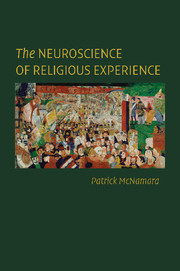Book contents
- Frontmatter
- Contents
- Preface
- Acknowledgments
- 1 God and the Self
- 2 On the Self and the Divided Self
- 3 Mechanisms and Dynamics of Decentering
- 4 Neurology of the Self
- 5 Neurology of Religious Experiences
- 6 Neurochemistry of Religiosity
- 7 Self-Transformation as a Key Function of Performance of Religious Practices
- 8 Self-Transformation through Spirit Possession
- 9 God Concepts
- 10 Religious Language
- 11 Ritual
- 12 Life-Span Development of Religiosity and the Self
- 13 The Evolution of Self and Religion
- References
- Index
10 - Religious Language
Published online by Cambridge University Press: 30 October 2009
- Frontmatter
- Contents
- Preface
- Acknowledgments
- 1 God and the Self
- 2 On the Self and the Divided Self
- 3 Mechanisms and Dynamics of Decentering
- 4 Neurology of the Self
- 5 Neurology of Religious Experiences
- 6 Neurochemistry of Religiosity
- 7 Self-Transformation as a Key Function of Performance of Religious Practices
- 8 Self-Transformation through Spirit Possession
- 9 God Concepts
- 10 Religious Language
- 11 Ritual
- 12 Life-Span Development of Religiosity and the Self
- 13 The Evolution of Self and Religion
- References
- Index
Summary
And when you pray, do not keep on babbling like pagans, for they think they will be heard because of their many words. Do not be like them, for your Father knows what you need before you ask him.
– Matt. 6:7–8Introduction
Although prayer is one of the constants of religion, the practice of praying varies tremendously in form and content (repetitive mantras, praise, petition, worship, thanksgiving, etc.) (Geertz, 2008). When people pray or when they engage in religious ceremonies or rituals, they talk in a more formalized style of language. There is also a generalized displacement of agency from the pray-er or from the people in the congregation and onto the deity. This displacement process is marked in the language used in religious rituals. We will review those specialized characteristics of religious language later in this chapter, but first we must ask why religious language is associated with special forms of language and language use.
One reason why religious language is peculiar is that the addressee of religious language (God) is special. How do you talk to God? Most people have never seen God or a god and even if they had the superior status of God would require special forms of address. In any case, for most people, language addressed to a god entails speaking to an invisible interlocutor who may or may not respond clearly.
- Type
- Chapter
- Information
- The Neuroscience of Religious Experience , pp. 206 - 211Publisher: Cambridge University PressPrint publication year: 2009



